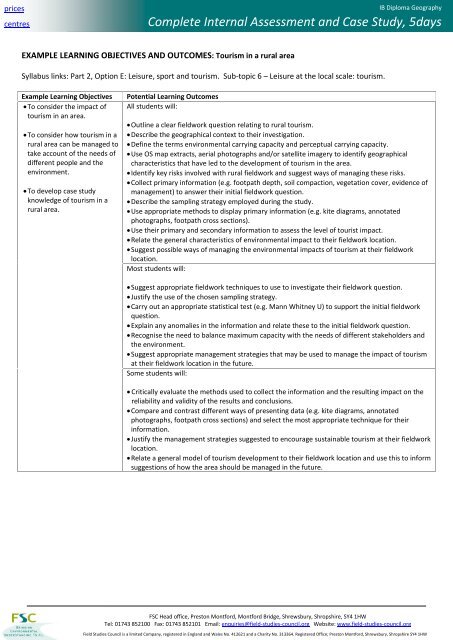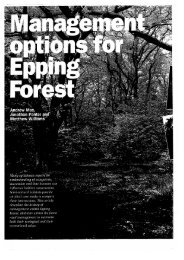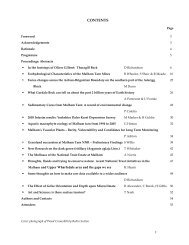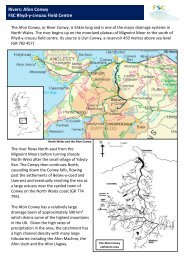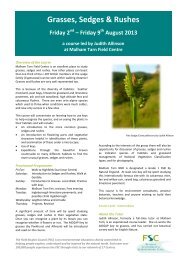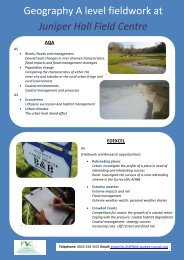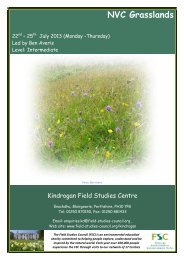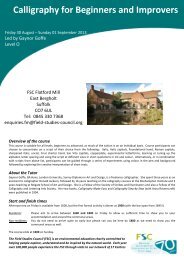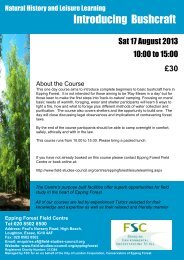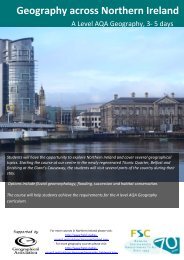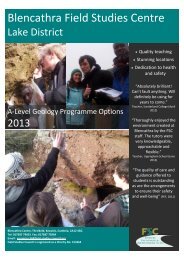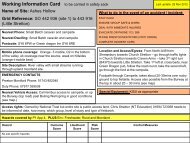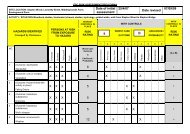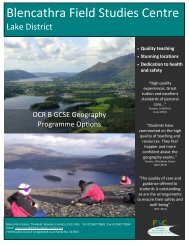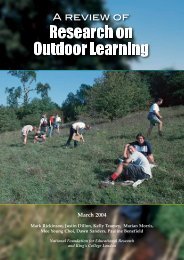READ MORE - Field Studies Council
READ MORE - Field Studies Council
READ MORE - Field Studies Council
You also want an ePaper? Increase the reach of your titles
YUMPU automatically turns print PDFs into web optimized ePapers that Google loves.
pricescentresIB Diploma GeographyComplete Internal Assessment and Case Study, 5daysEXAMPLE LEARNING OBJECTIVES AND OUTCOMES: Tourism in a rural areaSyllabus links: Part 2, Option E: Leisure, sport and tourism. Sub-topic 6 – Leisure at the local scale: tourism.Example Learning Objectives• To consider the impact oftourism in an area.• To consider how tourism in arural area can be managed totake account of the needs ofdifferent people and theenvironment.• To develop case studyknowledge of tourism in arural area.Potential Learning OutcomesAll students will:• Outline a clear fieldwork question relating to rural tourism.• Describe the geographical context to their investigation.• Define the terms environmental carrying capacity and perceptual carrying capacity.• Use OS map extracts, aerial photographs and/or satellite imagery to identify geographicalcharacteristics that have led to the development of tourism in the area.• Identify key risks involved with rural fieldwork and suggest ways of managing these risks.• Collect primary information (e.g. footpath depth, soil compaction, vegetation cover, evidence ofmanagement) to answer their initial fieldwork question.• Describe the sampling strategy employed during the study.• Use appropriate methods to display primary information (e.g. kite diagrams, annotatedphotographs, footpath cross sections).• Use their primary and secondary information to assess the level of tourist impact.• Relate the general characteristics of environmental impact to their fieldwork location.• Suggest possible ways of managing the environmental impacts of tourism at their fieldworklocation.Most students will:• Suggest appropriate fieldwork techniques to use to investigate their fieldwork question.• Justify the use of the chosen sampling strategy.• Carry out an appropriate statistical test (e.g. Mann Whitney U) to support the initial fieldworkquestion.• Explain any anomalies in the information and relate these to the initial fieldwork question.• Recognise the need to balance maximum capacity with the needs of different stakeholders andthe environment.• Suggest appropriate management strategies that may be used to manage the impact of tourismat their fieldwork location in the future.Some students will:• Critically evaluate the methods used to collect the information and the resulting impact on thereliability and validity of the results and conclusions.• Compare and contrast different ways of presenting data (e.g. kite diagrams, annotatedphotographs, footpath cross sections) and select the most appropriate technique for theirinformation.• Justify the management strategies suggested to encourage sustainable tourism at their fieldworklocation.• Relate a general model of tourism development to their fieldwork location and use this to informsuggestions of how the area should be managed in the future.FSC Head office, Preston Montford, Montford Bridge, Shrewsbury, Shropshire, SY4 1HWTel: 01743 852100 Fax: 01743 852101 Email: enquiries@field-studies-council.org Website: www.field-studies-council.org<strong>Field</strong> <strong>Studies</strong> <strong>Council</strong> is a limited Company, registered in England and Wales No. 412621 and a Charity No. 313364. Registered Office; Preston Montford, Shrewsbury, Shropshire SY4 1HW


